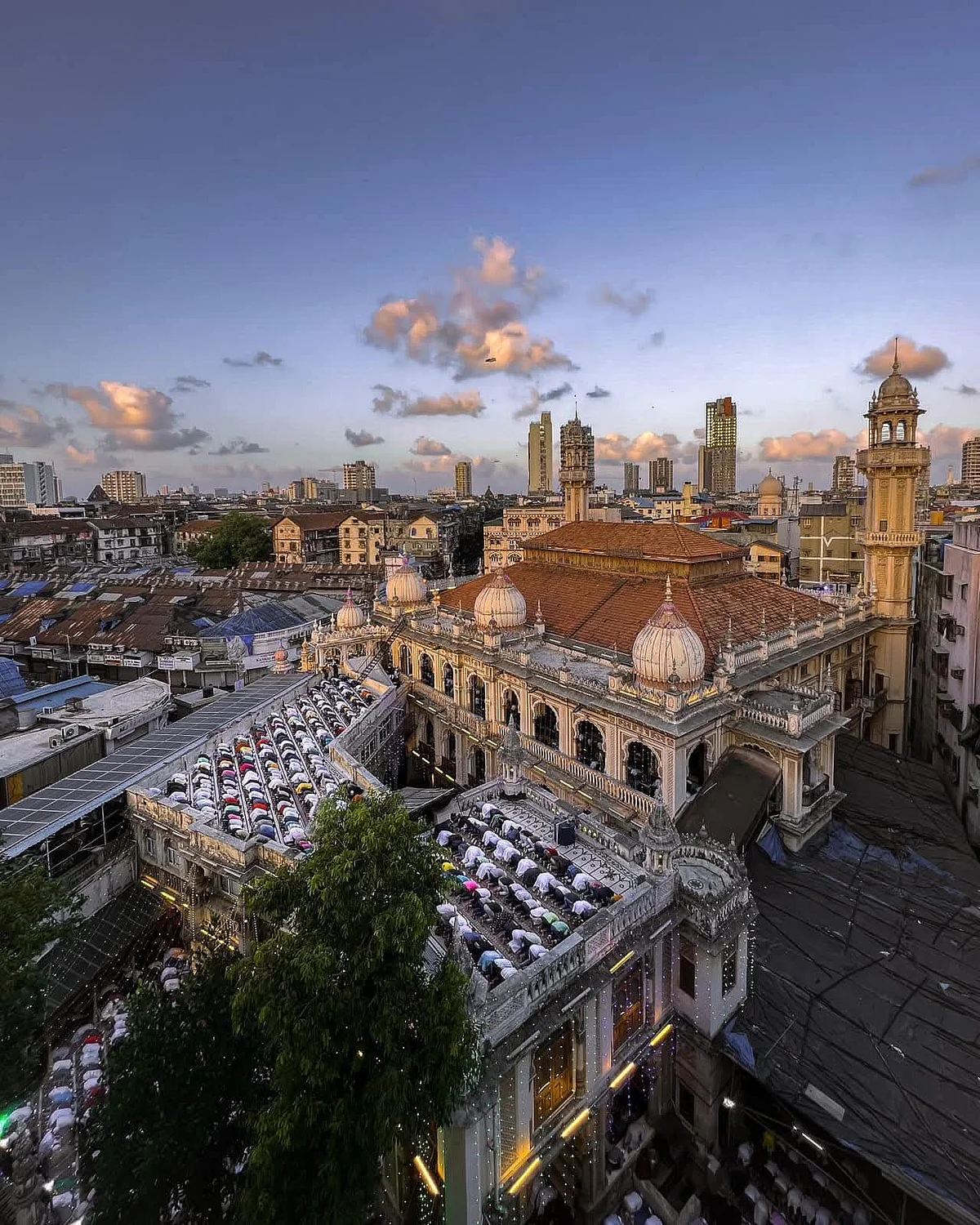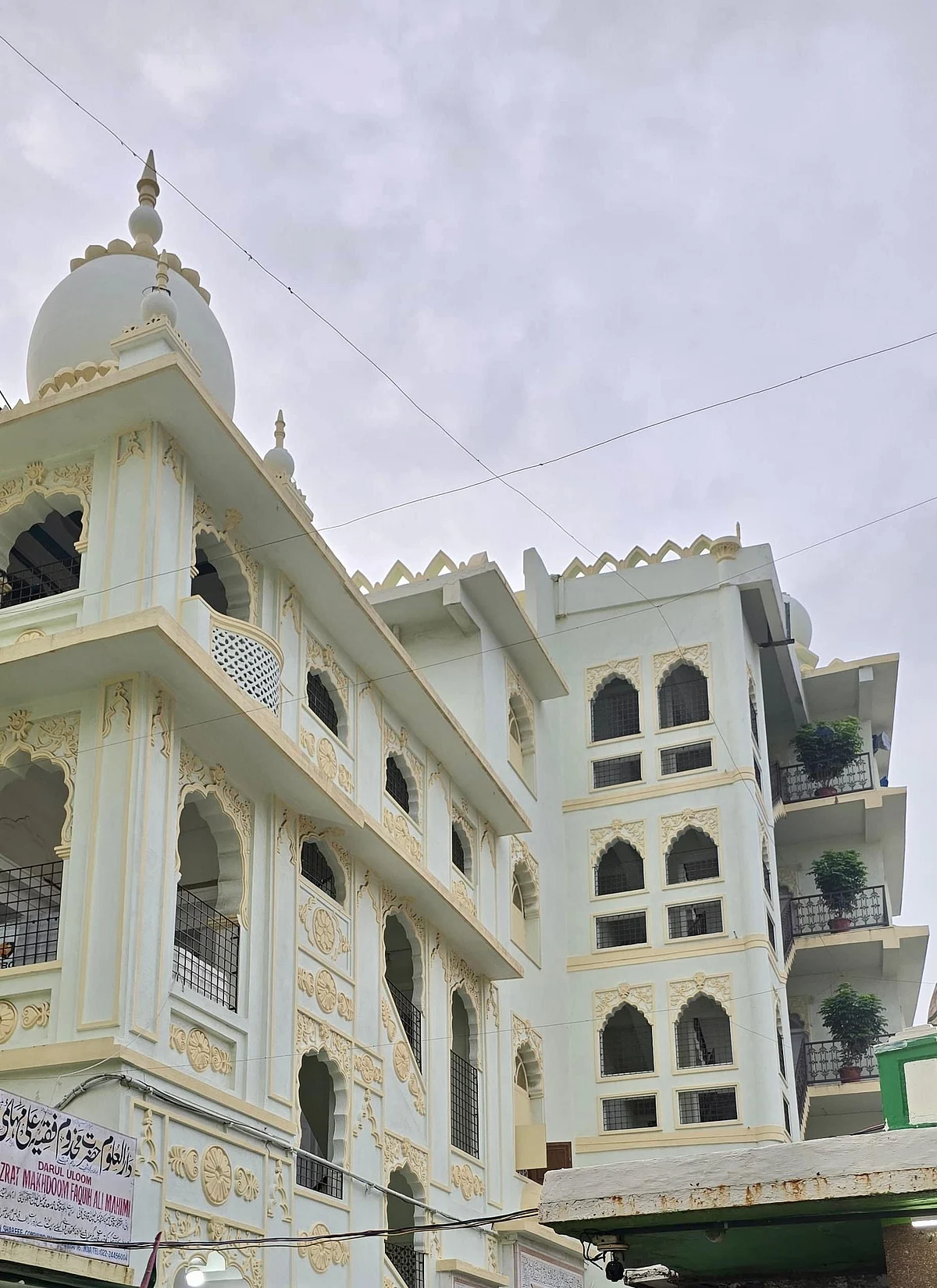With the police enforcing noise regulations on sound equipment at religious places, there is an acquiescence to the rules. Mumbai police have said that more than 1500 loudspeakers have been removed from religious places. FPJ spoke to Muslims living in different parts of the city, and the sentiment among them was about following the rules. Loudspeakers at mosques were largely the target of police action this time, though the rules are enforceable at every religious shrine.
Ashraf Ahmed Shaikh, an advocate from Mahim said, "This is a Bombay High Court order. The Supreme Court had given orders in this issue earlier. The orders have to be followed," said Shaikh who lives in the vicinity of three mosques, the Mahim Dargah's Jama Masjid, the Bismillah mosque, and the Topiwala Baba Masjid. Shaikh says he can no longer hear the azaan, or the call for prayers, from any of the mosques. "On Fridays, I visit the Jama Masjid because the day is for congregational prayers, but on other days, I choose a mosque according to my schedule. Every mosque has slightly different timings," said Shaikh, who uses a mobile application that reminds him of azaan timings when he travels out of the country. He has been using the app even before the ban on loudspeakers. He also uses digital services to locate the qibla, the direction of the Kaaba in Mecca, while praying.

Abdul Razak Maniar from Pydhonie said that the ban on azaan on loudspeakers has caused inconvenience. Maniar lives in the vicinity of three mosques, Hamidia, Khatri, and Shafi. "I cannot hear the azaan from any of the mosques, though they are using low-volume speakers. The traffic noise blocks the call for azaan. The tall buildings coming up in the area cut off the sound from the speakers," said Maniar, who is yet to download an azaan app to guide him to prayers. He has, instead, written down the timings for the prayers.
Abid Abbas Sayyed, an advocate, lives in a low-rise residential area in Deonar. The nearest mosque is a kilometre away. "Earlier, I could hear the azaan. I cannot hear it anymore, though there are no tall buildings in the area that could block the sound," said Sayyad, who says that azaan mobile applications can be complicated because different sects follow different timings.

Jama Masjid Crawford Market |
Trustee of Jama Masjid, Crawford Market, Shuaib Khatib, who lives next door to Nawab Ayaz Masjid in Bhendi Bazaar, shares his building's wall with the mosque. "The distance is not more than 10 feet, but I cannot hear the azaan on the speakers," said Khatib.
Khatib said that Muslims respect the country's laws. "That is why judgments on the Babri Masjid, the triple talaq law, the Waqf Amendment law, and the loudspeaker rules have been largely accepted at the end of the day, though there have been protests," Khatib said, blaming the politicians for exploiting religious issues. "After the loudspeaker ban, politicians and religious leaders made a beeline to meet the Chief Minister and the Deputy Chief Minister. Nothing has come out of these meetings. It is a court order," Khatib added.
Shaikh said that after people realised that it was a court order, they adapted to other ways to remind them of prayer timings. "Apart from the mobile applications, there are special clocks. There are other tools available on Google that can help you," said Shaikh.

Jama Masjid Mahim Dargah |
Farooque Dhala from Mahim calls the loudspeaker ban a 'boon'. "The loudspeaker could be heard only in a certain radius. The azaan mobile application is convenient. People can even perform the wuzu, the ritual cleaning, at home before going to the mosque. It saves water at the mosque," said Dhala, who added that he can no longer hear the azaan from the Bismillah Mosque, the closest to his house.
Khatib said that modern aids, such as mobile applications for azaan, are temporary solutions to the loudspeaker ban. "Namaz, after all, is a compulsory practice. Those who want to do the prayers do not need a reminder," said Khatib, who added that the apps that relay azaans live are not without hassles. "At Jama Masjid, we introduced a mobile application more than two years ago when there was a ban on the broadcasting of the morning azaan. However, there were technical problems with inadequate radio frequency. I think the government should relook at the noise rules. Traffic noise levels have increased due to irresponsible honking and loud motor engines. The city has more high-rise buildings. The 2005 noise rules have to change to take all these into account."









